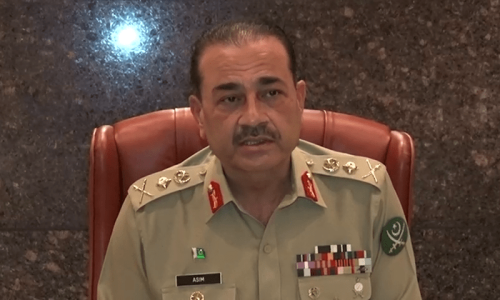UNITED NATIONS: Pakistan has formally told the UN Security Council that it has “clear evidence” that the outlawed Tehreek-i-Taliban Pakistan (TTP) is supported by “our main adversary” and has been given free rein to conduct cross-border attacks against Pakistan’s border outposts and other installations.
This revelation, which came during a Wednesday afternoon debate on a UN report on Afghanistan, also saw Pakistan’s UN Ambassador Munir Akram defending the country’s decision to expel undocumented foreigners, particularly Afghan nationals.
Although he did not name India, there was no doubt the UN envoy was referring to Pakistan’s neighbour to the East, as Pakistan has previously blamed New Delhi for backing Afghan-based terror groups for unrest and attacks within its borders.
The head of the UN Assistance Mission in Afghanistan (UNAMA), Roza Otunbayeva, also endorsed some of Islamabad’s complaints.
“Regional countries are concerned about additional possible threats emanating from Afghanistan,” noted Ms Otunbayeva, specifically highlighting Pakistan’s apprehensions. She also acknowledged Islamabad’s belief that “the Afghan de facto authorities have done too little to contain the TTP”.
Ambassador Akram informed the Security Council that cross-border terrorist attacks by the TTP and its affiliates had caused considerable loss of lives and properties, including military installations, in Pakistan.
“We have lost hundreds of our brave soldiers and civilians in these attacks just this year alone and last week,” he said.
He also pointed out that TTP’s attacks have become more lethal and sophisticated since the terrorist group acquired advanced military equipment. These weapons, he mentioned, came from the considerable stocks left behind by foreign forces that were based in Afghanistan for almost two decades.
“Pakistan demands that the United Nations — whether UNAMA or another agency — conduct a thorough investigation to determine how these weapons got in the hands of the TTP and to identify ways of retrieving them,” the Pakistani envoy said.
Defending Pakistan’s decision to expel undocumented foreigners, Ambassador Akram said: “Besides the security threat posed by terrorist ‘sleeper cells,’ many of these illegals are involved in drug trafficking, operate property mafias and other crimes.”
The influx of such large numbers of illegal immigrants has had a negative impact on Pakistan’s economy and job market, he added.
Pakistan continues to host 1.4 million registered Afghan refugees, while there are another 2.2 million Afghans living in Pakistan undocumented, including 700,000 who crossed into Pakistan after the Taliban takeover. However, Ms Otunbayeva warned that the expulsion has led to a deterioration in relations between the two neighbours.
Published in Dawn, December 22nd, 2023































